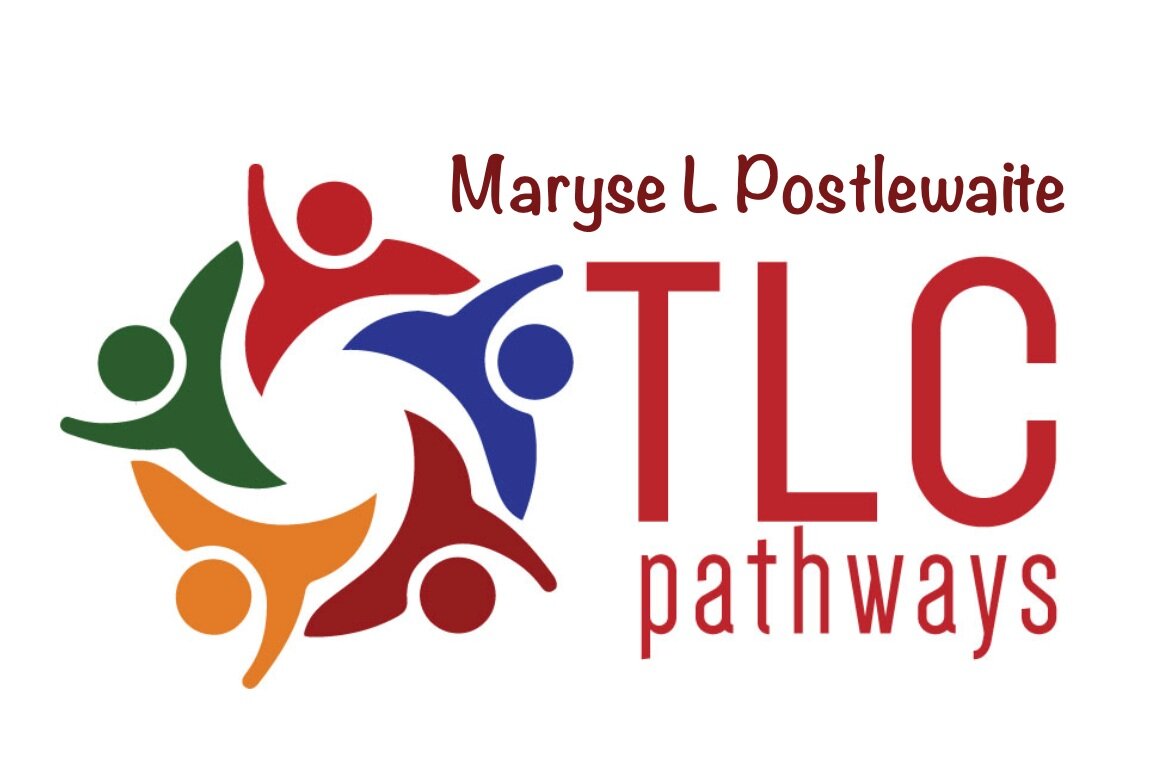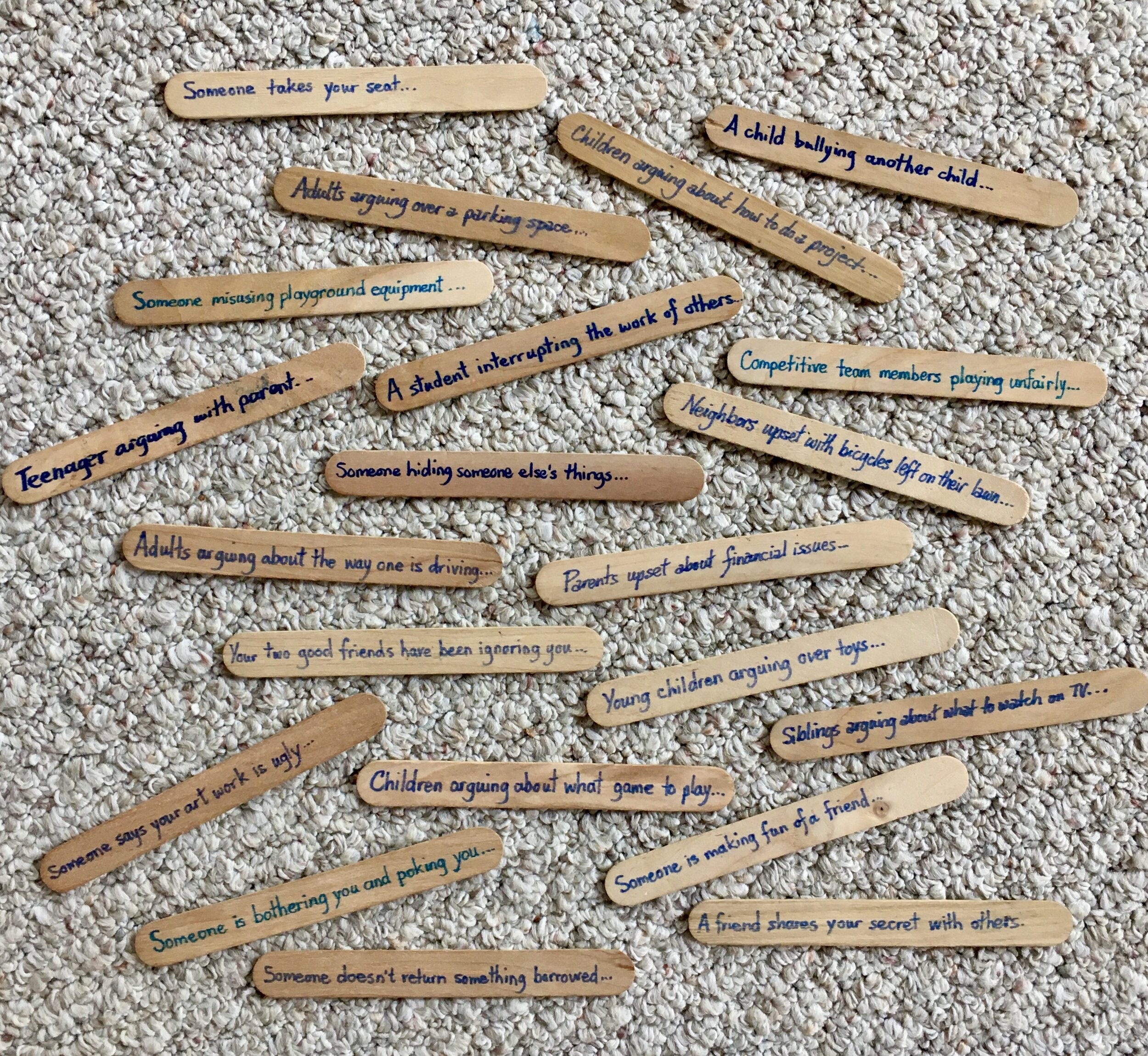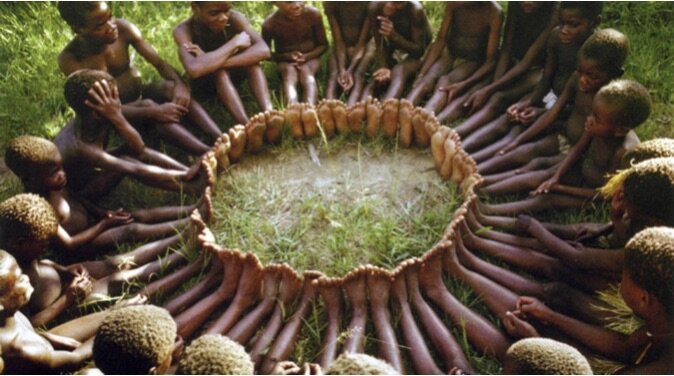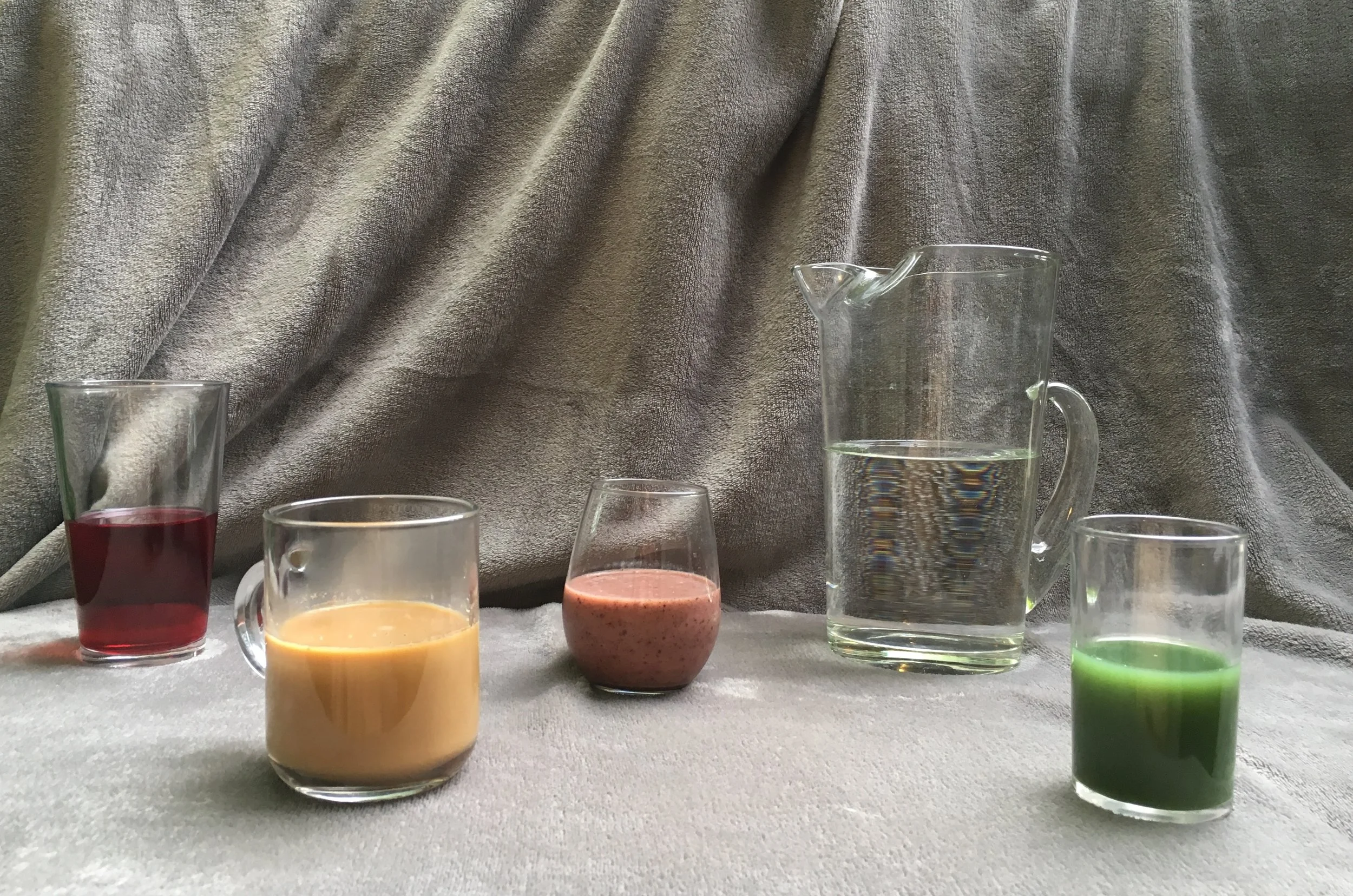A Benevolent Community
26 Days of Cultivating A Benevolent Community
While we look forward to our cities “opening up”, how might we incorporate what we have learned to appreciate over the past few months, into our day-to-day lives … nurturing compassionate relationships, prioritizing our values, and acknowledging gratitudes. Habits have been altered as we practice safe measures for care of others, visibly by wearing masks.
We have an opportunity to change our “invisible habits”, leading our lives with empathy, balance, reflection, kindness, and trust. I have 21 others, key words to guide us day-by-day. “Bit-by-Bit”, one act to practice or witness each day and share with others.
Beginning June 1st, join me in 26 days of cultivating A Benevolent Community. Daily, I’ll be posting a letter with some key words to use as an anchor for the day. Share with others, how you practice or how you witness this in action.
Contact me: pathways2tlc@gmail.com to set up a workshop.
Connect with Facebook: @tlcpathways
Instagram: maryse_tlcpathways or LinkedIn: Maryse L Postlewaite
Growing OUT of the Box
Creative Ideas for New Beginnings
It’s one thing to think out of the box. Imagine growing out of the box or out of your comfort zone. Haven’t we had to experience this recently? So how to make the best of these times. Acceptance, Trust, and Community have been essential for me.
We don’t generally invite obstacles, challenges, or hurdles to leap over. However, my experiences have led me to know that great growth occurs once acceptance and trust are present. My community of friends and family have supported me during difficult moments. And in these current times, that community has grown tremendously with neighbors, friends, and the many thought leaders who have made available great resources. Individually and globally, we have an opportunity to cultivate care for one another and our world. Just as our planet is benefitting from the clean air and slower pace, let’s elevate our relationships as global citizens.
We can adapt. We have adapted. Opportunities for new beginnings have emerged. It is up to us to embrace new beginnings.
We can alter our story and change our questions. For example, what has NOT been cancelled? How have our lives changed for the better? What have been the advantages of Shelter in Place? What lessons and new habits, might we adopt for our future? We can implement these bit by bit. (More on that soon.)
Share what commitments you want to make to contribute to a better life, not only for our own sake, but for our neighbors across the globe, and future generations.
Contact me: pathways2tlc@gmail.com to set up a workshop.
Connect with Facebook: @tlcpathways
Instagram: maryse_tlcpathways or LinkedIn: Maryse L Postlewaite
Reviving Singing Telegrams
Bringing Joy through Simple Gestures
Finding ways to bring joy to others is a powerful pathway in which both the giver and receiver benefit from the relationship. (Source below.) The brain science affirming this is outstanding. Our personal experiences reinforce this, too.
Eighty-seven years ago, singing telegrams were conceived of by George Oslin as an alternative to the association of a telegram only with death or other tragic news. Singing telegrams were first delivered in person since many people did not have a telephone.
Several years ago, small groups of children from my upper elementary class offered singing telegrams for Mother’s Day. I was on the call which my mom and aunt received from one of those groups. The joy on my mom and aunt’s face has stayed with me all these years.
Join me in reviving the tradition of singing telegrams! Share with the children, young and old, who are looking for what to do in the day when going out is limited. Reach out to the elderly, in particular, who may not be allowed to leave their apartment.
Consider some of Ella Fitzgerald’s hits like “I Want to be Happy” or “Blue Skies” or “Accentuate the Positive”. If you are not inclined to sing, then find a recording of a favorite song and just play it.
Join me in circulating around the globe the gift of song, renewing former trends, and spreading joy, particularly appreciated during these challenging times.
Contact me: pathways2tlc@gmail.com to set up a workshop.
Connect with Facebook: @tlcpathways
Instagram: maryse_tlcpathways or LinkedIn: Maryse L Postlewaite
The most precious gift we can offer others is our presence. When mindfulness embraces those we love, they will bloom like flowers. --Thich Nhat Hanh
Kitchen Personalities
A Fun Way to Get to Know Each Other
We can nurture relationships and build more trust and the outcome for all is beneficial. Learning more about one another and building rapport makes a difference.
Here’s a fun way to get to know others.
Gather your group together, be they family, work colleagues, or friends…this is best with at least 5 or up to 30 plus. Actually, there is no limit!
Gather a bunch of kitchen utensils (optional). Spread them out. Then ask the question: If you were a kitchen utensil, what would you be and WHY? It’s the “why” which is revealing as people tend to relate the use of the utensil to one of their favorable characteristics. (BTW, if someone feels too limited by a utensil, then suggest, anything in the kitchen or in the house/office for that matter.)
Here are some responses from various workshops and gatherings… I’d be…
a can opener because I like to get deeper inside of things
a metal spatula as I like to turn things around to have a new perspective
a sifter to be able to separate what’s important from what’s not
a wooden scrub brush because I like things to be neat and tidy
a bottle opener because I like to have a good time
an herb grinder because I like to add more flavor to situations
a wooden spoon since I like to mix things up
Point of Interest…I give credit to my family for this activity. A couple of years ago, I was informed that my name, “Maryse” was associated with a kitchen utensil… a spatula, a special one, used with pastries. It was coined after Maryse De Monpetit, a pastry chef from the royal court of Francois I, 16th century.
Since learning this about my name, our family asked one another the question. I like to gather good ideas and pass them along. So what kitchen utensil would you be and WHY?
Register for the Conflict Resolution online course http://learn.kidpower.org/course/conflict-resolution-pathways or email pathways2tlc@gmail.com for more information.
Connect with Facebook: @tlcpathways
Instagram: maryse_tlcpathways or LinkedIn: Maryse L Postlewaite
Boost Beneficial Conflict Outcomes
Successful Conflict Resolution Tips
Do you avoid conflict or are you ready to put up a flight or somewhere in between?
Look back at a most recent conflict. Do you wish you had handled it differently? Many a time, I wish I had. What can make a difference? Our approach, our authentic expression, our adaptability, and our commitment to enhancing our relationships.
Our prior experiences with conflict shape our approach which may be beneficial or detrimental to the outcomes. Implement some simple steps to ensure a positive result.
* Go directly to the person(s) involved to solve the problem. Avoid going to others, complicating the problem.
* Be open to diverse perspectives
* Be conscientious of your unjust judgements
* Be committed to attentive listening
* Be trusting
* Be encouraged by the benefits of resolving conflicts
Focusing on the potential favorable consequences of finding solutions to disagreements will affect our interactions towards nurturing more compassionate relationships.
Benefits to conflict resolution:
provides a catalyst to improved relationships
expands personal growth and insight
broadens exposure to new ideas
honors and fulfills needs
encourages authenticity
Practicing active listening, paraphrasing, bias awareness, perspective taking, and communication skills, removed from the actual conflict, presents possibilities to implement enhanced skills when discord arises. Role playing through conflict skits (photo of ideas used in workshops with students) fosters our realization of the intricacies of relationships and provides opportunities to refine our interactions.
Contact me: pathways2tlc@gmail.com to learn more.
Connect with Facebook: @tlcpathways
Instagram: maryse_tlcpathways or LinkedIn: Maryse L Postlewaite
Precious Moments
Precious Moments
It takes such a short amount of time, and only a little effort, and will reduce our stress levels, and yet, how often do we recognize the precious moments which occur on a daily basis?
There is mounting research that indicates the power of reducing our stress level by being grateful, and taking time to recognizing others in a positive way. In addition, deep breathing and quiet time can activate our parasympathetic nervous system, reducing our heart rate, and helps us to be more relaxed.
Whenever I’m at the check out stand, while waiting for “Processing Approved”, I make it a point to chat with the cashier, asking about their day or sharing a compliment. I usually am met with care and attention. That precious moment is a wonderful connection which makes a difference in my relationships.
Isn’t it ironic that just when we feel we don’t have time to add anything to our daily tasks, that taking time to notice what is precious to us, acknowledging others or sitting quietly for even just 5 minutes to breathe deeply makes us healthier and happier? Who doesn’t want that?
Join me in making a daily practice to notice or create precious moments, no matter how busy we think you are.
To learn more about cultivating positive habits, improving communication skills, and conflict resolution workshops, send an Email: pathways2tlc@gmail.com.
Connect with Facebook: @tlcpathways
Instagram: maryse_tlcpathways or LinkedIn: Maryse L Postlewaite
An Authentic Apology
Forgiveness is a Gift
How does it feel to receive a sincere apology? For me, the integrity of the relationship is restored, trust is re-established, and a meaningful connection is deepened. So why can apologies be difficult to express or why may they be ineffective? A person may fear being vulnerable, not wanting to be blamed, or avoiding an embarrassing situation. Another potential obstacle may be how we were raised to give an apology.
Maybe you’ve heard adults say to a young child, “Say, you're sorry”. Is this successful? Coerced apologies usually fail to convey authenticity. For those of us working with children, we have the opportunity to demonstrate the components of an authentic apology. The following points are keys for the young and old.
Share an apology once you are ready to express remorse.
State your wrongdoing, taking responsibility.
Offer to right the wrong, making mutually accepted agreements.
Make a commitment to not repeat the misconduct.
In a recent workshop with elementary children, I was asked how to best give an apology. A key is to recognize and express the misdeed. Essential words are: “I’m sorry for…” It’s crucial that a person clearly identify [for what it is specifically] they are apologetic.
Refrain from using a “but” as this retracts taking responsibility for the misconduct and can put the blame on someone or something else.
Sincere apologies have many benefits. There is opportunity for restitution, making deeper connections, boosting confidence, strengthening credibility, and nurturing compassionate relationships. An authentic apology is an essential element of conflict resolution.
Send an Email: pathways2tlc@gmail.com to set up a workshop.
Connect with Facebook: @tlcpathways
Instagram: maryse_tlcpathways or LinkedIn: Maryse L Postlewaite
Shifting Stereotypes
Sesame Street Shifts Stereotypes
Celebrating 50 years, Sesame Street is a champion in stamping out stereotypes and dealing with diversity through its many muppet characters who depict the wide range of people of our world. What’s not to love in our most favorite?
It has been with intention that Sesame Street producers creatively introduced to its worldwide audiences the array of similarities and differences which we have with one another. Take for example some of these characters we meet: Rosita, the bilingual muppet who teaches Latin American culture and language; Kami who brings awareness to the HIV/AIDS epidemic in South Africa; Mahboub, an Arab-Israeli muppet who speaks both Arabic and Hebrew; Tarah, a nine-year old girl who performs wheelchair ballet; Lily who faces food insecurity; and Julia who encourages us to be more sensitive and empathetic to those with autism. Presenting these characters and many others as members of our every day communities has made a difference in influencing the young and old to reduce prejudices.
There are a flurry of “anti-bias” and diversity trainings happening in the work force in many fields from schools to corporations. Despite the great value in bringing awareness through trainings, it is through getting to know others who are different from ourselves whereby we can dissolve the stereotypes we have. Researcher and author, Jennifer Eberhard, writes in her recently published book, Biased, “We know that close relationships with people unlike ourselves - at school, at work, at church, in neighborhoods - can help mute the impact of prejudice and blur group boundaries.” (I highly recommend this book!)
And yes, we all have biases. From a very youthful age, as young as 6 months, babies are aware of skin color. Studies show that the “color blind” message, that is, if you don’t think about race, you won’t be biased… has backfired, hindering our progress towards greater equality. Our approach to others of a different skin color or any other “difference” for that matter, can bear a positive influence for future generations. Let’s be the agents of change to honor one another just like Sesame Street’s characters do.
For fun, chime in to share your favorite clip from Sesame Street in honor of their 50th Anniversary.
Send an Email: pathways2tlc@gmail.com to set up a workshop.
Connect with Facebook: @tlcpathways
Instagram: maryse_tlcpathways or LinkedIn: Maryse L Postlewaite
https://www.history.com/news/8-stereotype-shattering-sesame-street-characters
Do You Evoke Ubuntu?
We All Belong to Each Other
A friend shared with me the concept of Ubuntu. It’s a practice worth spreading! Recently, I read the story of the group of young children who joined arms to run together towards a prize of candy which was meant for the fastest runner. They were practicing ubuntu naturally as part of their culture.
Archbishop Desmond Tutu’s explains his understanding of Ubuntu: “Africans have a thing called Ubuntu. We believe that a person is a person through other persons, that my humanity is caught up, bound up, inextricably, with yours. When I dehumanize you, I inexorably dehumanize myself. The solitary human being is a contradiction in terms. Therefore you seek to work for the common good because your humanity comes into its own in the community, in belonging.”*
Each community we are a part of, relies on our contributions, great or small. Simply our presence can make a difference. Consider your participation in the various communities which you are a part of… family, clubs, interest groups, work, boards, sports affiliations, your city, your country… You are a part of each of these and each is a part of you.
Besides practicing Ubuntu, how else can we build stronger communities? Communication is a key. Influenced by a new class I’m attending, I’ve been considering authentic communication. When am I impulsively speaking out of a reaction or my conditioned responses? How can I create a safe space for others to share authentically and I practice active listening?
I invite you to spread the idea of Ubuntu and find ways to practice it in your communities, with attention to the ways of communicating with one another.
Send an Email: pathways2tlc@gmail.com to set up a workshop.
Connect with Facebook: @tlcpathways
Instagram: maryse_tlcpathways or LinkedIn: Maryse L Postlewaite
* photo & quote credit https://www.tusharvakil.com/2018/04/27/do-you-have-ubuntu/
How is a Community Like a Wheel?
Interconnections in our Communities
The wheel is a metaphor for the structure of a community. Imagine that each spoke represents a person in the community. The spokes joining at the hub provides strength, stability, and ease in moving the society along. The hub is what connects each individual. Each person is interdependent as are the spokes of the wheel. Should one spoke break, then the wheel no longer moves forward smoothly. By contrast, one strong spoke can help support the rest of the group. Think of peace advocates who have impacted your life. The influence of the individual is significant.
Build a sense of community with each group you are a part of. For years, I introduced many team building activities within the first weeks of the school year. These proved to be beneficial when our class faced difficult decisions together. Since I had introduced the idea of how our community was like a wheel, solutions that we considered would weigh in on what was best for the group. Sometimes discussions on compromise would arise. The goal is to find Win-Win solutions.
To unpack this metaphor further, we discuss how the hub at the center is what brings the community together. The children identify the different communities they are a part of…family, sport teams, clubs, classes, city, country, even the world. We are members of multiple communities to which we have an allegiance.
At times, children from the same classroom found themselves playing on opposing sides of a team sport. The question would arise, to which community is your strongest allegiance? Doesn’t this happen for adults whose family members are from a different church, a different political perspective, or have different values. Regardless of these separate communities, we are all members of the human race, a community as a whole. We are different and we are one.
When I am the broken spoke or the one supporting others so that the wheel moves steadily, I’ve found the Golden Rule to be my guiding principle.
As J.K. Rowling writes, “We are only as strong as we are united, as weak as we are divided.”
For more ideas about building community, send an Email: pathways2tlc@gmail.com to set up a workshop.
Connect with Facebook: @tlcpathways
Instagram: maryse_tlcpathways or LinkedIn: Maryse L Postlewaite
Positive Thinking
The Power of Positivity
How we overcome obstacles, makes a difference. For his many accomplishments, Henry Ford had as many if not more hurdles to overcome. He was raised on a farm, along with his seven siblings. At the youthful age of 15, he built his first steam engine. He disliked farm work, a motivating factor for his eight mile walk to Detroit at the age of 16, to find work in a machine shop. Some think that he invented the automobile or assembly line. However, he did neither. He developed and manufactured the first affordable automobile. Ford overcame many, many obstacles, and has to his name 161 unique patents. Another famous quote of his, “Don’t find fault, find a remedy.”
Some years ago, a friend said to me, “Be careful what you tell yourself.” I find myself remembering this when negative thoughts creep in.
Fostering a positive attitude makes a difference in our overall health. Reframing our challenges is a first step. Visualize possibilities by changing your language, using the “Power of Yet”. Journaling daily gratitudes has been known to impact our thoughts favorably. Warren Buffet stated that one of his keys to happiness is to surround himself with positive people. Now over 90, he continues to be active, going to work regularly (though his retirement is around the corner.) He describes as another key to happiness…to be passionate about the work you do. These principles resonate with me.
Take some time to consider how you can expand your positive outlook. We can train our brain in a relatively short amount of time to permanently raise levels of happiness. Join me on this quest.
To learn more about our brains and neuroscience, register for the online course on Conflict Resolution. http://learn.kidpower.org/course/conflict-resolution-pathways Or email pathways2tlc@gmail.com
Connect with Facebook: @tlcpathways
Instagram: maryse_tlcpathways or LinkedIn: Maryse L Postlewaite
Balance for All
Lead with Justice for All
Do you remember playing Tug of War, two teams on opposing sides pulling with all their might to win the other team over to their side? This is taking on the viewpoint that power is like weights in a balance whereby no one gains power without someone else losing power. However, we can maintain and even gain in our own personal power when we change our perspective.
Years ago, I was introduced with an alternative game, Tug of Peace, with two opposing teams pulling on the rope, but teams win when the center of the rope hovers over a designated spot. If one side shows greater strength, some switch sides to create an equilibrium, keeping the center balanced. The challenge is to see how long this balance of strength can be maintained in working together.
At the root of many interpersonal and worldwide conflicts is the struggle for greater power. However, we can maintain and even gain in our own personal power when we change our approach. We can fortify one another’s power without others losing theirs. Working together, we can affirm each other and as a result earn one another’s trust. In resolving conflicts, we can reach greater understanding, respect, and compassion. We can experience the balance of control when, letting go of our own agenda, taking on the perspective of the other and reaching mutual agreed upon solutions. In this way, we find win-win results.
Let us be judicious in our own lives so that we do not have the need for greater power at the expense of others. Let us begin with our interpersonal relationships to find this balance so that it may affect the worldwide struggles, creating an appreciable sense of justice.
To learn more about building greater balance in our relationships and the workshops which I offer, send an email: pathways2tlc@gmail.com.
Connect with Facebook: @tlcpathways
Instagram: maryse_tlcpathways or LinkedIn: Maryse L Postlewaite go to www.tlcpathways.com
Half-full or Half-empty?
Avoid Negativity Bias
Is your glass half-empty or half-full? Most of us like to think that we see the glass as half-full. Our approach to our day-to-day life is affected by our perspective. We are influenced by circumstances, some not in our control. However, we can sway our biases and tendencies with a positive outlook and favorable habits.
Research indicates that our brain reacts more strongly to negative stimuli, than positive. Early humans’ survival depended on being vigilant of danger. However positive acts, thoughts, and experiences can override this. It does take focused effort.
William Shakespeare stated, “There is nothing either good or bad, but thinking makes it so.”
Here’s an idea to keep your thinking in the positive. When making statements either aloud or to yourself, express them in the positive: Change “I don’t like to wash the car.” to “I like a clean car.”; “I can’t get to the gym.” to “I feel better after a work out.” This is particularly helpful when engaging others in setting rules, state them in the positive. Instead of “Don’t interrupt.” say, “One person speaks at a time.” Change, “Don’t hit.” to “Keep your hands to yourself.”
For more constructive ways to affect your perspective for the positive, set up a workshop to support and practice positive habits through interactive initiatives. Send an email: pathways2tlc@gmail.com.
Connect with Facebook: @tlcpathways
Instagram: maryse_tlcpathways or LinkedIn: Maryse L Postlewaite
Value of Reminders
A Prompt Helps us to Remember
Do you know where the idea to tie a string on your finger to help you remember something originated? In Greek mythology, Ariadne gave Theseus the thread with which he found his way out of the Minotaur’s labyrinth. In times gone by, gentlemen would tie a knot in their handkerchief to remind themselves of something important.
Eternity Knot Bracelets.
Science indicates that as animals, we are wired as “out of sight, out of mind” beings. The string is a prompt. Rings, bracelets, even rocks can be prompts. Choose a prompt which works for you. Consider a habit you’d like to change and let your prompt be your reminder. I’ve worn an eternity knot bracelet to help me be a better listener. I’ve distributed “gratitude rocks” to remind us to think of for what we are grateful each and every day. Research indicates that expressing thanks rewires our brains and produces extraordinary health benefits!
Contact me to set up a workshop and I’ll incorporate this activity in the customized, interactive workshop for your group. Send an email: pathways2tlc@gmail.com.
Connect with Facebook: @tlcpathways
Instagram: maryse_tlcpathways or LinkedIn: Maryse L Postlewaite




























